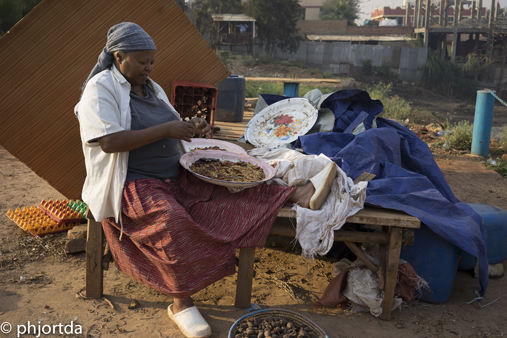About the project
This project is part of Strategic And Collaborative Capacity Development in Ethiopia and Africa (SACCADE).
The prevalence of obesity and type 2 diabetes is increasing in an alarming rate in Africa related to an alarming urbanization which results exposure to diets high in calorie and saturated fat and physical inactivity; demographic transition; and childhood conditions like intrauterine growth retardation, child hood malnutrition and stunting. By the year 2013 there were around 19.8 mil and 1.8 mil adults with diabetes in Africa and Ethiopia respectively. Of the total diabetes cases in the continent 90-95% of them are type 2 diabetes.
For tackling the condition, patient empowerment through diabetic self-management education (DSME) is being recommended widely. In Ethiopia, despite an increase in the prevalence of type 2 diabetes, no cost-effective, culture sensitive and patient centered diabetes management strategy is in place. Thus, it is worth wise to devise and test cost-effective culture sensitive DSME.
Objectives
The main objective of this project is to assess effects of DSME on psychosocial outcome (HRQoL, self-efficacy, depression and anxiety), clinical outcome (BP, BMI, WC, BGL & Hb1Ac), and behavioral outcome (medication adherence, health care utilization, and self-care practice) among adult people with Type 2 diabetes in Ethiopia.
Outcomes
- HRQoL
- Self-efficacy
- Depression and Stress level
- Clinical outcomes: BMI, Waist Circumference, Hb1Ac, BGL, BP
- Self-care practice
- Diabetes Health Care Utilization
Background
A quasi-experimental study design will be employed to determine the effects of DSME on psychosocial, clinical, and behavioural outcomes. The intervention group will be selected randomly from adult type 2 diabetic patients having follow-up at Jimma University Teaching Hospital (JUTH) chronic illness follow-up clinic and the control group will be selected randomly from adult type 2 diabetic patients having follow-up at Asella hospital, which is also a teaching hospital found at 500 Km away from JUTH.
The DSME training will be given by trained clinical nurses for 4 months with 4 sessions. Baseline data will be collected before the intervention and follow-up assessment will be made two months after the completion of the training. For comparison of the outcomes between the groups chi-square test and logistic regression will be employed.
Sub-Projects
- Psychosocial, clinical and behavioral status of adult people with type 2 diabetes in Ethiopia
- DSMS effect on psychosocial outcome among adults with type 2 diabetes in Ethiopia
- DSMS effect on clinical outcome among adults with type 2 diabetes in Ethiopia
- DSMS effect on behavioral outcome among adults with type 2 diabetes in Ethiopia
Financing
- NORAD
Start - finish
2015 - 2018
